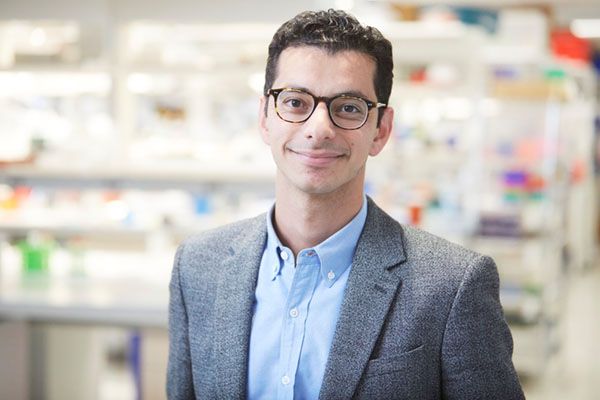
Organisms use circuits of interacting regulatory molecules to specify when and where genes are expressed. These regulatory circuits mediate remarkable functions, such as orchestrating precise and robust gene expression patterns during multicellular development. Additionally, we’ve learned that these circuits are extensively modified during evolution, and that this rewiring is a significant source of the diversity of life. Yet, how these regulatory circuits function, how they evolved, and how they generate biological novelty remain unclear to this day. To investigate these questions, we utilize rational design approaches, in which we build regulatory circuits in eukaryotic cells from the bottom-up. This allows us to reconstitute existing circuits with precisely tailored biochemical parameters and establish functional sufficiency in a native cellular context. Additionally, these efforts provide a foundation for the purposeful manipulation of gene regulatory circuits in human cells, which could lead to breakthroughs in development of next-generation therapeutics. In this talk, I will describe how we’re using these efforts to study and re-design eukaryotic transcription circuits. In particular, I will discuss our work to rebuild a universal feature of these circuits – the ability of TFs to assemble on DNA cooperatively with one another to regulate a gene – and explore how the principle of cooperativity may be a key mechanism for enabling precise signal processing, regulatory specificity, and the evolution of circuits. Finally, I will show how we are translating these insights into the design of artificial gene expression programs for precise control of therapeutic human cells.
Ahmad (Mo) Khalil is the Dorf-Ebner Distinguished Associate Professor of Biomedical Engineering and the Founding Associate Director of the Biological Design Center at Boston University. He is also a Visiting Scholar at the Wyss Institute for Biologically Inspired Engineering at Harvard University, and Co-Director of a NIH/NIGMS T32 PhD Training Program in synthetic biology. His research is interested in how molecular circuits enable cellular functions, such as decision-making, computation, and epigenetic memory. His team develops synthetic biology and prospective evolutionary approaches to study the function and evolution of genetic and epigenetic regulatory systems. He is recipient of numerous awards, including the Presidential Early Career Award for Scientists and Engineers (PECASE), DoD Vannevar Bush Faculty Fellowship, NIH New Innovator Award, NSF CAREER Award, DARPA Young Faculty Award, and Hartwell Foundation Biomedical Research Award, and he has received numerous awards for teaching excellence at both the Department and College levels. Mo was an HHMI Postdoctoral Fellow with Dr. James Collins at Boston University. He obtained his Ph.D. from MIT and his B.S. (Phi Beta Kappa) from Stanford University.
Research
Cells use “circuits” of interacting regulatory molecules to activate and control sophisticated gene expression programs, allowing organisms to process information and interact with their environments. We are interested in how these gene regulatory circuits function and how they evolve to generate phenotypic novelty. My team develops two complementary approaches to discover the design principles of gene regulatory circuits and to enable their purposeful manipulation, which could lead to breakthroughs in the development of cell-based devices for therapeutics and other biomedical applications. First, we use rational design approaches, in which we build regulatory circuits in eukaryotic cells from the bottom-up. This synthetic biology approach allows us to re-design existing circuits with precisely tailored biochemical parameters and establish functional sufficiency in a native cellular context. While this first-principles based approach can illuminate general principles of circuit design, deciphering which regulatory designs nature chooses depends on other factors, such as the types of selective pressures that organisms encounter. Thus, second, we develop new high-throughput methods for the evolution of biological circuits to recreate and identify drivers of regulatory change. A central pillar of this effort is “eVOLVER”, a DIY flexible continuous culture system we invented that enables automated continuous growth and evolution of cellular systems in precisely-controlled conditions. We have used these synergistic approaches to accelerate discovery of fundamental principles governing genetic and epigenetic mechanisms of gene regulation, and to provide a powerful foundation for designing biological systems to program new traits in engineered cells and tissues and combat disease.
For details of his research and recent publication, please visit HERE
© Copyright International BioDesign Research Conference - All rights reserved